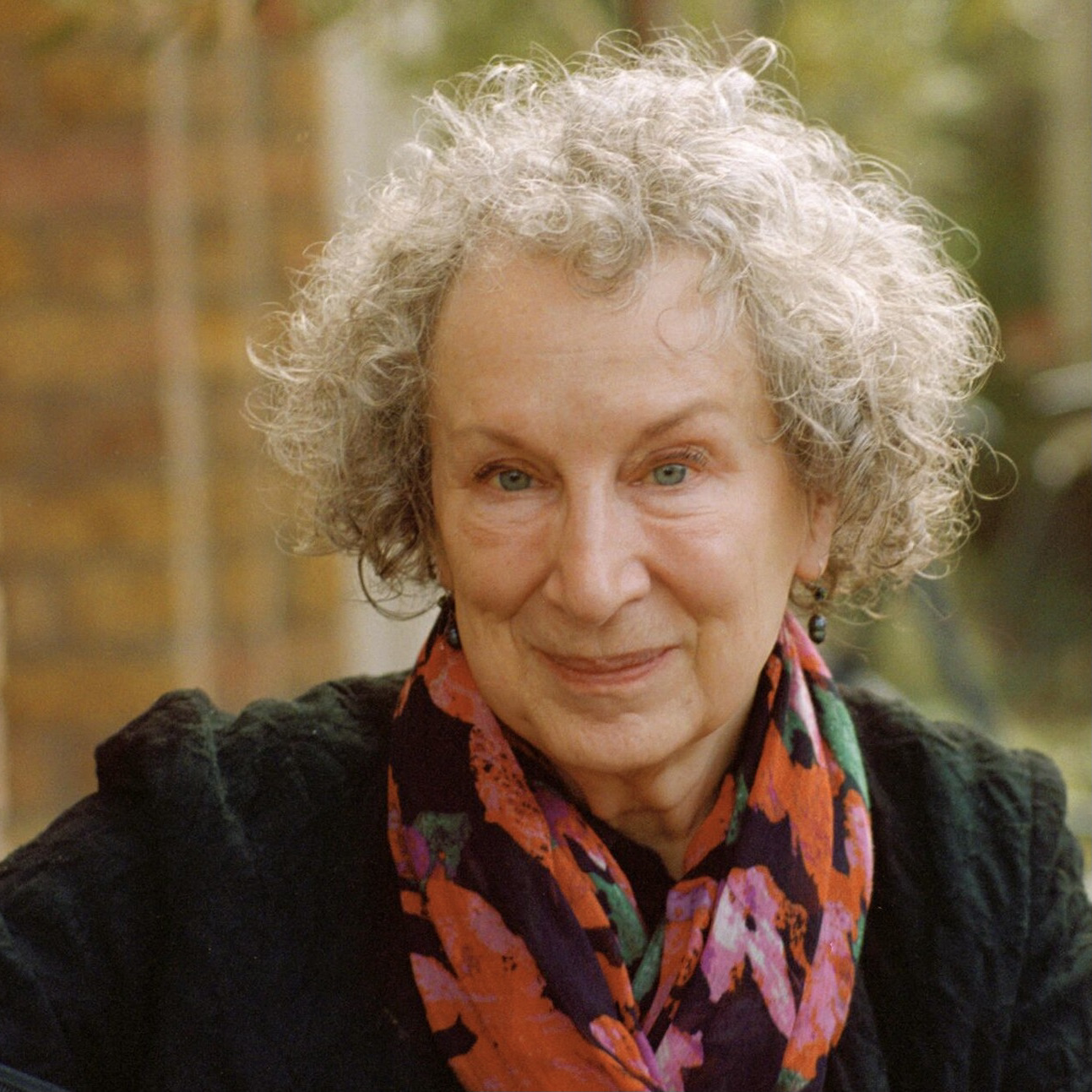Margaret Atwood
Born: 1939
Regarded as one of Canada’s finest living writers, Margaret Atwood is a poet, novelist, story writer, essayist, and environmental activist. Her books have received critical acclaim in the United States, Europe, and her native Canada, and she has received numerous literary awards, including the Booker Prize, the Arthur C. Clarke Award, and the Governor General’s Award, twice. Atwood’s critical popularity is matched by her popularity with readers; her books are regularly bestsellers and her novels have been adapted into popular movies and television series.
Atwood was born in Ottawa and earned her BA from Victoria College at the University of Toronto and MA from Radcliffe College in Cambridge, Massachusetts. She first came to public attention as a poet in the 1960s with her collections Double Persephone (1961), winner of the E.J. Pratt Medal, and The Circle Game (1964), winner of a Governor General’s award. These two books marked out terrain her subsequent poetry has explored. Double Persephone dramatizes the contrasts between life and art, as well as natural and human creations. The Circle Game takes this opposition further, setting such human constructs as games, literature, and love against the instability of nature. Sherrill Grace, writing in Violent Duality: A Study of Margaret Atwood, identified the central tension in all of Atwood’s work as “the pull towards art on one hand and towards life on the other.” Atwood “is constantly aware of opposites—self/other, subject/object, male/female, nature/man—and of the need to accept and work within them,” Grace explained. Linda W. Wagner, writing in The Art of Margaret Atwood: Essays in Criticism, also saw the dualistic nature of Atwood’s poetry, asserting that “duality [is] presented as separation” in her work. This separation leads her characters to be isolated from one another and from the natural world, resulting in their inability to communicate, to break free of exploitative social relationships, or to understand their place in the natural order. “In her early poetry,” Gloria Onley wrote in the West Coast Review, Atwood “is acutely aware of the problem of alienation, the need for real human communication and the establishment of genuine human community—real as opposed to mechanical or manipulative; genuine as opposed to the counterfeit community of the body politic.” Source
